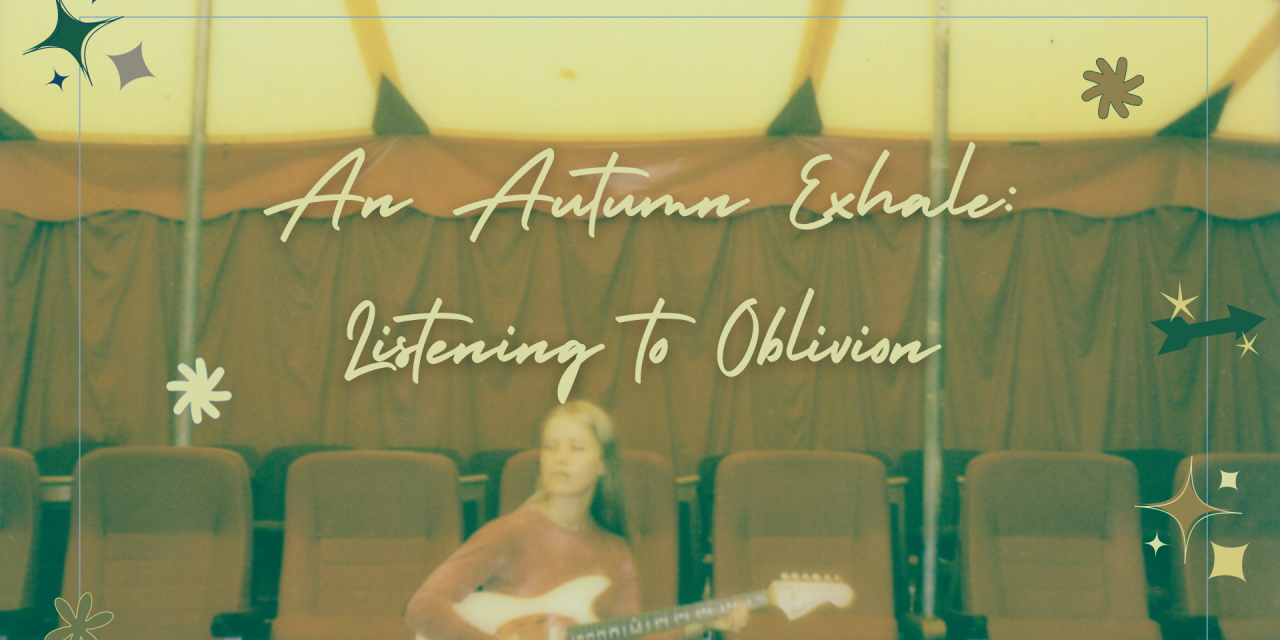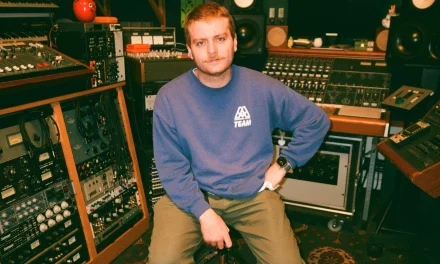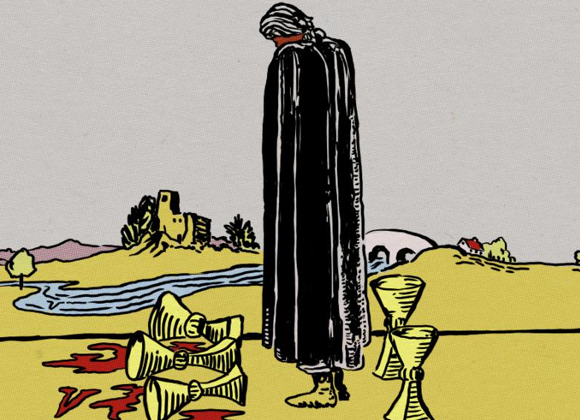Alice Phoebe Lou’s Oblivion is a quiet exhale—the kind of album that doesn’t demand attention, but gently asks for a listening ear. Following the shimmering dream-pop textures of Shelter, this record feels stripped back, almost skeletal by comparison. It’s mostly acoustic, built on fingerpicked guitar lines and hushed vocals that sound like they’re being sung just for you.
It’s not Lou’s most immediately gripping work; in fact, it can blend together at times because of its subdued, even monotonous, tone. But that’s part of its charm. There’s a deliberate stillness to Oblivion—an album about learning to be okay with uncertainty, with fading light, with not needing to fill every silence. Sit with it for a while, and its stillness begins to feel intentional.
The opener, “Sailor,” sets the tone: bare, sincere, quietly aching. Lou’s voice cracks in all the right places, the lyrics tiptoeing between disbelief and relief at being right about love. Her words drift like smoke, tangible for a moment before fading away. As an introduction, it establishes the record’s spirit: gentle surrender instead of spectacle, intimacy instead of momentum. It immediately became my favorite track, though I’ll admit, I’m a sucker for anything even vaguely related to the ocean. The song’s final guitar passage feels like home, like watching an old friend strum a hand-me-down guitar on their childhood bed.
Next comes “Pretender,” where Lou confronts the armor she’s worn in the past—performative confidence, curated self-assurance, the little lies we tell ourselves. The production remains minimal, but the emotional weight lands hard. Her voice wavers between warmth and ache, capturing someone learning to love herself without the mask. It’s self-acceptance, not as triumph but as quiet realization, something that I think every listener could relate to in some way.
There’s something undeniably in-season about this record. It sounds like late autumn: the chill of fading sunlight, the hush of things ending but not yet gone. In that sense, Oblivion feels less like a reinvention and more like a pause. It’s Lou at her most delicate, most human, and most reflective. Sincere and lovely in its own right, it’s an album meant to be played when the world feels too loud and you need to remember how beautiful silence can be.
Somewhere in the middle stretch, though, the album begins to blur. A few songs melt into one another, their softness making it easy to lose your footing. Lou’s greatest strength has always been her ability to balance vulnerability with fearless experimentation, and Oblivion occasionally tips too far toward fragility. It’s beautiful—no question—but I found myself missing the sharpness, the surprises, and the instrumentation beyond guitar and piano that made Shelter my favorite of hers. While the album is cohesive, it might be too cohesive. It’s the kind of record I’d play while walking to class or studying at the library–comforting and atmospheric–but not something I’d return to frequently
Ultimately, Oblivion feels like Alice Phoebe Lou taking a deep breath after years of color and noise. It’s her quietest, most introspective record—an album that trades the shimmer of previous albums for something earthier and more fragile. Built around guitar and voice, it’s a study in restraint. Lou pares everything back until only the essentials remain: honesty, melody, and quiet acceptance. You can feel the maturity in her writing, leaning less on whimsy and more on lived-in wisdom.
While longtime fans might miss the groove that defined her earlier albums, Oblivion stands on its own as a sincere, graceful reflection of where she is now. It’s understated, beautiful, and quietly brave—an album that doesn’t shout to be heard, but lingers long after it ends. It’s a reminder of Lou’s genuine talent and a gentle promise that whatever comes next will be worth listening to. For now, I’ll let this simple, delicate record be the soundtrack to my quiet November.
// Photo: Andrea Ariel
Hi! My name is Oswin Colley and I'm a News Media major with a minor in Digital, Public, and Professional writing at the University of Alabama. I have worked in media for four years as a writer, reporter, and photographer in the central Alabama area. My favorite albums are Crying, Laughing, Waving, Smiling by Slaughter Beach, Dog and Open This Wall by Berlioz








